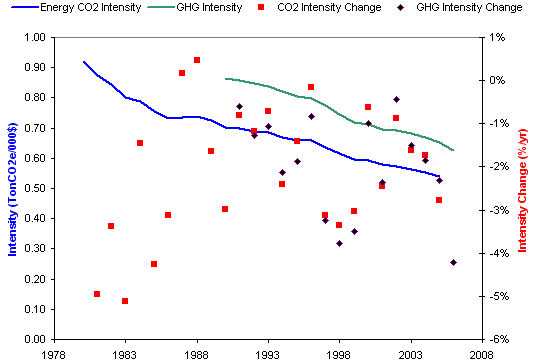From the latest National Journal‘s Congressional Insiders Poll. Perhaps this is another special case of the general phenomenon of elites being more politically polarized.
Tag: politics
It's the crude price, stupid
The NYT reports that Hillary Clinton and John McCain have lined up to suspend federal excise taxes on fuel:
Senator Hillary Rodham Clinton lined up with Senator John McCain, the presumptive Republican nominee for president, in endorsing a plan to suspend the federal excise tax on gasoline, 18.4 cents a gallon, for the summer travel season. But Senator Barack Obama, Mrs. Clinton’s Democratic rival, spoke out firmly against the proposal, saying it would save consumers little and do nothing to curtail oil consumption and imports.
…
Mrs. Clinton would replace that money with the new tax on oil company profits, an idea that has been kicking around Congress for several years but has not been enacted into law. Mr. McCain would divert tax revenue from other sources to make the highway trust fund whole.
On April 22, EIA data put WTI crude at $119/bbl, which is $2.83/gal before accounting for refinery losses. Spot gasoline was at $2.90 to $3.14 (depending on geography and type), which is about what you’d expect with total taxes near $0.50 and retail gasoline at $3.55/gal. With refinery yields typically at something like 85%, you’d actually expect spot gasoline to be at about $3.30, so other, more-expensive products (diesel, jet fuel, heating oil) or cheaper feedstocks must be making up the difference. The price breaks down roughly as follows:
Plus ça change, plus c’est la même chose
Last Wednesday, President Bush called for the US to halt the growth of greenhouse gas emissions by 2025:
‘It is now time for the U.S. to look beyond 2012 and take the next step,’ Mr. Bush said, a reference to his previously stated national goal, announced in 2002, of an 18 percent reduction in the growth of emissions of heat-trapping gases relative to economic growth by 2012. Mr. Bush said the nation was on track to meeting that target. – NYT
Those who remember the 2002 commitment may recall that, at the time, emissions intensity had historically fallen by 1.3% per year on its own, so that the administration policy actually committed only to an additional 0.4% decline (assuming continuity with history). With GDP growth at about 3% per year, that would leave absolute emissions growing at about 1.7% per year. In fact, intensity has fallen about 2.5% per year since 2002, with much of that in 2006. Since it’s way too soon for investments in climate-related R&D to be having any effect, it’s likely that the savings are due to $100 oil. That is not an emissions reduction method that is likely to pass a cost-benefit test.
In the context of the long term,-2.5% over 4 years is still hard to separate from noise. Continue reading “Plus ça change, plus c’est la même chose”

